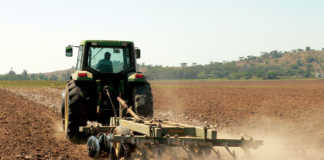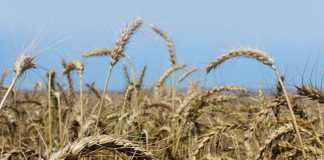
Photo: FW Archive
The South African Poultry Association (SAPA) plans to expand the sector over the next two years through investments totalling R900 million, according to Izaak Breitenbach, general manager of SAPA’s Broiler Organisation.
This was despite failing infrastructure around the country, threats of disease outbreaks, and the ongoing ‘dumping’ of imported poultry products on the domestic market, as well as South Africa’s poor economic situation.
Breitenbach added that this funding was part of the R2,4 billion investment that the local poultry sector had vowed to make in accordance with the Poultry Master Plan.
“Since the signing of the master plan in 2019, the private sector has already invested R1,5 billion [in the poultry sector],” he told Farmer’s Weekly.
He added that this investment had resulted in a 10% increase in production capacity and the creation of 2 600 direct and indirect jobs since 2019.
“This is a material acceleration of the industry’s transformation, and we believe the broiler crop will continue to grow as a result of the increase in production capacity,” he said.
Challenges
Last year, the broiler sector, with an annual turnover of nearly R51 billion, was South Africa’s largest animal production sector, while the egg sector, with an annual turnover of more than R11 billion at primary production level, was the fourth-largest, Breitenbach said.
While egg and broiler producers faced threats and opportunities unique to them, he added that they also had some common challenges: there were concerns about high feed prices, failing infrastructure around the country, and the continued threat of highly pathogenic avian influenza (HPAI) outbreaks.
Dr Abongile Balarane, general manager of SAPA’s Egg Organisation, said HPAI was directly responsible for the significant reduction in South Africa’s layer flock over the past few years.
In January 2021, the country’s national layer flock was estimated at 28 million birds. In April of the same year, an outbreak of HPAI resulted in a loss of about 2,8 million layer hens.
Since January 2022, however, the national flock had rebounded to around 27 million birds, and industry experts forecast that the flock would once again increase to 28 million birds by the 2023 summer season.
Despite this recovery, Balarane said farmers needed to remain vigilant in the fight against HPAI, as experts now regarded the disease as endemic to South Africa.
SAPA encouraged producers to explore the possibility of vaccinating their birds against the disease in an attempt to mitigate the financial losses, as well as the negative impact that the culling of birds had on the environment.
South Africa could see a new wave of HPAI outbreaks in 2023, as the disease was spread by wild birds, which meant that HPAI could remain a serious threat during winter, Balarane said.
Profitability
When it came to the poultry sector’s profitability, Breitenbach said the current extremely high production costs were having a severely negative impact on producers’ income.
“The primary driver of chicken and egg prices is feed costs. At present, there doesn’t seem to be any relief on the horizon in terms of [production costs], and that will keep the pressure on price.”
If feed prices did not decrease in 2023, poultry product prices would remain relatively high, he said.
“Currently, local producers are ‘subsidising’ the very high [input] costs [to protect] consumers,” Breitenbach said, adding that chicken products and eggs would remain some of the most cost-effective and versatile sources of animal protein for South Africans, despite the increasing prices.
“This year, the broiler sector will focus on tariffs and do everything in its power to have the suspended anti-dumping duties against the countries involved reinstituted,” Breitenbach said.
In August 2022, Minister of Trade, Industry and Competition Ebrahim Patel announced a decision to postpone the implementation of import duties against Brazil and four European countries until August 2023.
This was despite a report by the International Trade Administration Commission of South Africa, which showed that the importation of cheap chicken portions from these countries was negatively affecting South African farmers.












